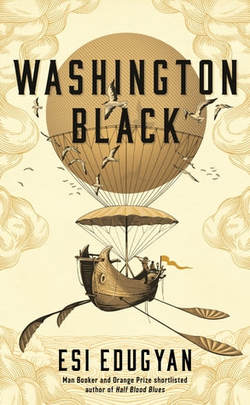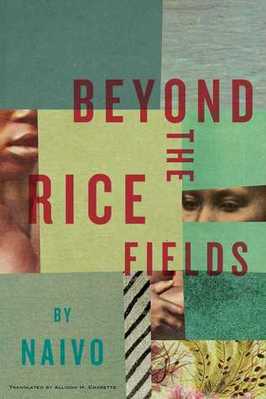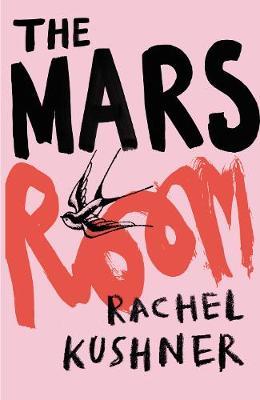Washington Black by Esi Edugyan
When Washington is transferred from field labourer to personal servant, he’s terrified. He has no way of knowing that Christopher Wilde, nicknamed Titch, abhors his brother’s business and will treat him with a kindness he’s never known. While collecting data for the abolitionists in London, Titch has come to Barbados to work on a flying machine, a cross between a hot air balloon and a rowing boat with wings.
As he assists the eccentric inventor, Washington discovers a talent for drawing well beyond his years. Titch plans for the pair to publish an academic paper, Washington illustrating the amateur scientist’s words. But the idyll is interrupted when the brothers’ cousin Philip comes to stay.
When Titch tests the flying machine, Washington’s face is severely burned, primarily due to Philip’s greed. Later, another selfish, if despairing, act of Philip’s kills Washington’s hope of a better, or any, life. Unable to protect his prodigy if they remain on the island, Titch decides they must leave that night. And so a whole saga of other adventures begins.
I was so impressed with the voice, and Esi Edugyan’s ability to render the horror of slavery without tempting the reader to look away, that I was initially disappointed when the man and boy left Barbados. But I came to appreciate the other threads of the story of African enslavement – the bounty hunters; the underground railroad; the genteel abolitionists – as well as the historical context in which it came to an end. As Washington discovers, this was a period of polar exploration; of questioning creationism; and geographical and scientific exploration by people – primarily men, but if you follow the last two links you’ll find a couple of women – of independent means. (Some, like Titch, will have been financed by slavery.)
Like another of this year’s favourite reads, Spaceman of Bohemia, Washington Black fizzes with events and ideas without seeming overstuffed. In addition to the social issues, this larger-than-life story encompasses the stigma of facial disfigurement and the orphan’s inner homelessness. The slavers are also shown to be damaged individuals, and Titch’s generosity to have a self-serving base. (I have a short story about this in my forthcoming short story collection, Becoming Someone.) The take-home message for contemporary readers is that inequality diminishes us all.
This is the fourth novel I’ve read this year from the Man Booker Prize longlist, and the one I’m most hoping gets through to the next round. (Tap on the cover image for my reviews of the three others.) Thanks to Serpent’s Tail for my review copy.
Beyond the Rice Fields by Naivo translated by
Alison M Charette
After taking him travelling across the country, Rado leaves him with his young daughter, Fara, and her mother and grandmother in Sahasoa, a village a week’s walk from the capital. There he finds a fondness that almost compensates for his losses: Fara treats him as a brother and the women as grandson and son. Sure, he must work, but so must other children. When foreigners establish a mission school, Tsito is enrolled along with Fara and their friends.
But as they grow, Tsito’s feelings for Fara are more than for a sister; she, however, has given her heart to one of their childhood friends. Besides, intermarriage with slaves is against the law. So the boy asks to be sold on to the wealthy landowner who’s taken a shine to him. His world becomes larger as he extends his knowledge and skills.
Since the early years of the century, Madagascar has been opening up to foreign influence under a modernising king. But Christianity doesn’t mix well with ancestor worship and, when a new queen takes the throne in 1828, she fears its rising popularity will limit her powers. While courting English and French industrialists (and sending Tsito to Chatham in Kent to learn about shipbuilding), she authorises a brutal purging of Christian converts and anyone else deemed a threat to the regime.
Although not a Christian, Fara’s mother is one of the many victims, and later Fara herself. The women are subjected to “trial by tangena”, a ritual not unlike the mediaeval treatment of witches, where they must swallow three bird skins followed by a deadly poison; only if they survive and regurgitate all three skins is their innocence deemed proved.
I discovered Beyond the Rice Fields through the #TranslationThurs meme on Twitter with a review by Lisa Hill. As the first Madagascar novel to be translated into English (and not even from Malagasy, but from French), and having holidayed there several years ago without learning much about its history, I hoped to like it more. Unfortunately, I wasn’t convinced by the author’s choices in telling the story through the voices of Fara and Tsito and was unmoved by their on-off romance. While the bigger story of colonialism and repression was more interesting, I found myself confused among the politicking of multiple players.
Unable to trace a British publisher, I purchased a paperback published by Restless Books, an American non-profit “devoted to championing essential voices from unexpected places and vantages”.


























 RSS Feed
RSS Feed





















